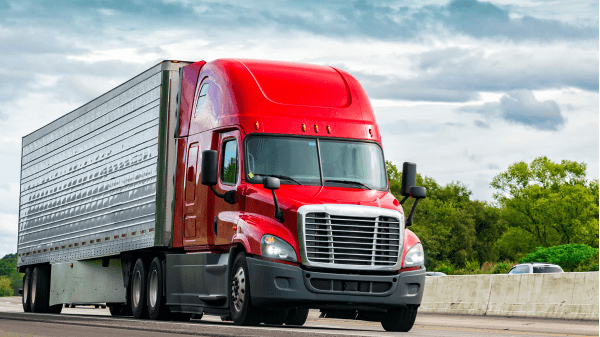For this transportation-themed series, Blueprints hosted a roundtable discussion of crucial issues affecting the sector. Learn what our panel of nine experts had to say, as they offer their perspectives and weigh in on key issues and more.
CHALLENGE #2: INSURANCE AND LAWSUITS
Insurance costs for carriers have skyrocketed in recent years, with some laws requiring up to $2 million in coverage per truck.
At the same time, huge settlements from lawsuits have become increasingly common and helped these related issues land in two spots on the American Trucking Research Institute list, with lawsuits climbing the ranks to fourth, and insurance costs ranked ninth.
With more and more so-called “nuclear verdicts” (rulings in excess of $10 million), and the industry’s first billion-dollar verdict coming in 2021, this is a growing area of concern among drivers and fleet owners.
Mike Laws, founder and president of Laws Logistics in Naples, FL
While we have not had any specific issues regarding insurance or liability recently, we have seen liability insurance premiums continue to increase.
The best way to combat that trend is to have a strong and continual risk analysis process in place.
Michelle Lewis, manager, Sparky’s Transportation Corporation BB #:170030 in Clarks Summit, PA
The biggest issue I see is that smaller companies will not have the money to cover insurance costs. This would also be an issue for larger companies that are self-insured.
Many owner-operators would not be able to afford the coverage.
Michael Miqueli, president, San Antonio Broker Services, Inc. BB #:197829 in Secaucus, NJ
With the nuclear verdicts awarded over the last several years, we’ve seen a steady climb in our insurance rates.
Many insurance carriers don’t even want to provide quotes to truckers who go into the boroughs of New York.
Ted Prince, COO and EVP for planning, Tiger Cool Express, LLC BB #:290720 in Overland Park, KS
We have these eight-, nine-, and now ten-digit nuclear verdicts. The insurance companies determine policy more than the operators. It’s a real problem if we can’t address these liability issues.
There’s software that will allow you to address unsafe driving habits and fix them, make the drivers safer, but nobody wants to do that. If you can pass a road test, it’s fine, but they never test again.
It’s too much investment to go back and recheck, or to correct bad habits that you learn about with data.
There needs to be a cooperative effort to improve this and make drivers a safe resource through continuing education and improvement.
Joe Rubini, president, Rally Logistics Inc. BB #:209734 in Toronto, ON
Insurance has been an increasing issue in the past few years, as many of the larger companies are not even providing fleet insurance anymore.
In Canada, it’s even more difficult than in the United States; insurance premiums are higher, and even getting insurance is becoming increasingly difficult.
Norita Taylor, director of PR, Owner-Operator Independent Drivers Association (OOIDA) BB #:162349 in Grain Valley, MO
We oppose increasing the minimum insurance requirement on motor carriers introduced in Congress by Chuy Garcia (D-IL).
It would require trucking companies to increase liability from $750,000 to almost $5 million—a hike of over 500 percent—with the possibility of further increases to adjust for inflation.
Most carriers would not be able to afford this, and it would lead some carriers to simply go without insurance at all.
This is an excerpt from the Transportation & Logistics supplement to the July/August 2022 issue of Produce Blueprints Magazine. Click here to read the whole supplement.



